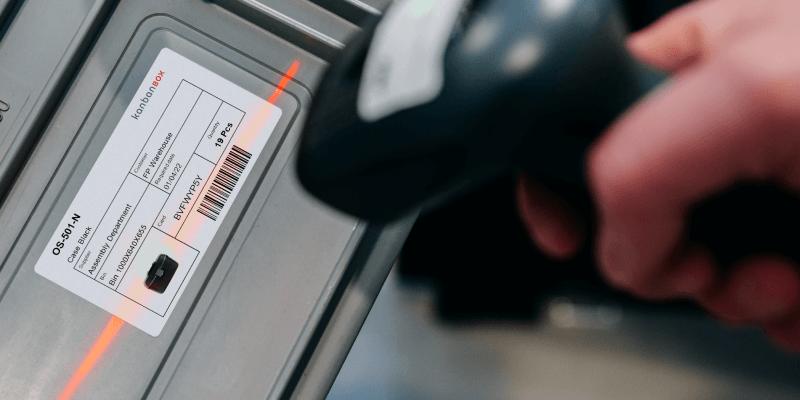
8 key lessons from Toyota
ROUND-UP – Our editor looks back at the most insightful articles Planet Lean has published on the most talked-about company in the lean world. Here are eight key lessons from Toyota, straight from our archives.
Words: Roberto Priolo, Managing Editor, Planet Lean
Photo credit: Bhakpong / Shutterstock.com
No conversation on lean goes on too long without someone mentioning Toyota. As the birthplace of “lean thinking”, the Japanese carmaker has become a model for organizations around the world that strive to embrace continuous improvement. We are inspired by Toyota, we are driven by the thought of one day becoming as successful as it is, and we get frustrated when we can’t.
To many of us, Toyota is something of a mystery. The degree of success it’s enjoyed for decades (whose causes are continuously explored and debated by scholars and lean thinkers – check this insightful piece by John Shook for more on this) is rarely within reach of organizations, let one effectively replicated. To critics of lean, this is enough to advance opinions around why Lean Thinking “does not work”. Personally, I have always seen this from a slightly different perspective: perfection is unattainable anyway (Toyota itself isn’t perfect), but the simple fact that an organization strives to embrace Toyota-inspired principles and practices is often enough to put it on a path towards excellence – or at least improvement – and help it stand out. In other words, it’s about the journey more than the destination. And, by the way, isn’t this in line with the fifth principle of lean, striving for perfection, as described by Jim Womack and Dan Jones?
As utopian as it might sometimes feel to achieve Toyota-like success (certainly a depressing thought for lean organizations working hard every day to improve), it is impossible to deny the great value inherent to the lessons the company has taught us over the past half century – or the great benefits that thousands upon thousands of businesses have generated by applying them.
I have recently been going through the articles on Toyota that we have published over the past few years here on Planet Lean, to see if I could extrapolate some key lessons. The list I have come up with is by no means exhaustive, and even though it might feel like it’s not telling you anything new, I believe that the articles it contains are very insightful. If you have missed them, I encourage you to give them a read.
So, here are eight key lessons from Toyota, straight from our archives:
- Don’t try to copy Toyota. Too many times we hear companies proudly announce that they are “doing the Toyota Production System”. It is a common belief to expect there to be some kind of a formula magically ensuring the success of a transformation, and TPS is a natural place to search for that formula. While its techniques and principles are fundamental, they are not enough. There are several universal ideas, but ultimately each company needs to “find its lean”, the unique blend that works for their circumstances. Rather than copy and paste, it is a matter of copy, think and paste. In reminding us that the secret to successfully transforming a business is developing in everyone the capability to find and solve problems, Nate Furuta – a Toyota veteran who has exported Toyota’s culture to countless greenfield and brownfield initiatives around the world – said: “Toyota became successful because its executives were determined to create a culture dedicated to finding Toyota’s problems, then aligning solutions to those problems with Toyota’s vision. TPS is the culmination of many of those solutions. You and your organization must learn to find your problems and develop solutions that align with your vision. Toyota’s tools and techniques may be part of that solution, or they may not, and that depends on the problems you find.” Read Nate’s article here (and buy his book Welcome Problems, Find Success for more invaluable insights.)
- Be relentless in your elimination of waste. We know that lean takes a lot of work and a lot of patience. To fulfil its promise and truly turn around a process, a department, or an organization, we must be extremely determined and deliberate in our will to eradicate waste consistently and intelligently. That means detecting problems early and leaving no stone unturned until the root cause has been identified. As Stefano Cortiglioni, Head of Toyota Lean Academy Europe, said in this interview: “Toyota is simple! It is so simple that sometimes we struggle to understand it. What makes Toyota’s principles and ideas challenging to apply is the discipline they require.” Stefano was running the Italian plant of Toyota Material Handling at the time Sadao Nomura led a quality revolution there, through early detection of defects and immediate PDCA-based action. His 8-step approach (outlined in the book The Toyota Way of Dantotsu Radical Quality Improvement) has even inspired companies in the tech world!
- Commit to life-long learning. Lean cannot exist without people development (ask those who thought it possible to transform through some ill-conceived cost-cutting initiative that only aimed to gain efficiencies in the short term). It’s important to understand that developing people means much more than providing training; it means to provide each individual with the skills they require to be the best version of themselves at work, taking into account their unique learning path over time. This can only happen on the job. This interview with Martyn Hayward and Yian Bary of Toyota Motor Manufacturing UK is enlightening: “For us, learning is fundamental because we know that developing our people is the only way to develop our organization. We recognize the value of human development: flexible, motivated people lie at the center of Toyota Production System. […] Some organizations don’t pay enough attention to people development. To them, it looks like a detour, when it is actually the best shortcut.”
- Keep calm in a crisis. As hard as we may try to avoid it, things sometimes go south. War, pandemics, natural disasters, supply chain disruption, skyrocketing cost of raw materials… faced with such huge problems, even the best companies falter sometimes. Toyota has had its fair share of struggles in recent years but has always shown a remarkable ability to bounce back. Part of this clearly stems from the large amounts of cash the company has in the bank, which allows it to weather the storm without laying people off and gives it the time to regroup and think its way out of the crisis. Two things worth noting here. First of all, when faced with massive challenges, Toyota has responded by going “back to basics”, rediscovering its core values of customer first, safety, and continuous improvement. Secondly, it’s been able to do so because of the stable and calm approach of its leaders. When asked what lessons from previous challenges were informing the company’s response to the Covid-19 pandemic, Akio Toyoda said: “The number one thing I have learned and that I am prioritizing from my learning is that I am not panicking. I am managing the company very efficiently and stably. In managing the company during these past 10 years, no years were peaceful. Every year, year on year, we have witnessed and experienced a large, drastic change on the scale of a one-in-a-100-year event. So, I think that the calmer I am, the calmer things are within the company.”
- Make respect for people your mantra. A lot has been written about Respect for People and the vital role it plays in lean organizations. But what does it really mean to respect people? To Toyota, it means to, quite simply, be there for its employees through the good and the bad. When the company was forced to shut down its manufacturing operations in Australia in 2017, it provided us all with a masterclass in respect for people. The announcement of the closure was given directly by the Chairman to plant employees five years before the actual shutdown. Subsequently, a program was initiated to accompany people through the transition: some were offered early retirement, some were helped into new careers or positions in other parts of the company, but no one was left behind. When asked what sets Toyota apart, Mike Hoseus said: “Trust and respect, which are defined and lived out in many different ways across Toyota, is the trait that stuck with me the most. Our purpose as organizations should not be profit. We need it, but it’s not the end game. Profit is important in that it allows for long-term prosperity for employees, suppliers, and the community, and that is respect in its largest definition. At front-line level, respect for people expresses itself through servant leadership.”
- Understand that it is not value if it doesn’t benefit everyone. Toyota has a holistic view of value. Customers come first, always, but the generation of value for them should not come at the expense of employees, suppliers, the wider community, and the environment. Indeed, what we often see with lean is that the benefits in one part of the organization will often be felt elsewhere, too. In the simplest of terms, a company that takes care of its people (see point 5), producing more with less and always keeping an eye on the bigger picture and its long-term vision is a better corporate citizen. Check out this interview with Steve Hope, General Manager of Environmental Affairs and Corporate Citizenship at Toyota Motor Europe. He said: “We want to systematically reduce our direct environmental footprint, but we also want to share our technologies and knowledge with society at large. This allows us to deliver an even greater overall indirect benefit.”
- Be the right kind of leader. Lean leadership is another topic about which thousands of pages have been written. Toyota describes it as “Go see, ask why, show respect”. I have always loved the simplicity and completeness of this mantra. (Back to basics again, I guess!) Live by these three fundamental principles and you’ll be on the right track to become a good lean leader who can effectively lead changes in her organization. If you want to read more about what makes a good leader at Toyota, don’t miss this interview with Isao Yoshino, who said: “First of all, a good leader is a good listener, rather than a good talker. Someone who judges things from many different angles rather than one single factor. Someone who will emphasize the process over the result, with the idea that a good process will bring a good result. Someone who treats people equally and is the let-us-find-the-answer-together type rather than the do-what-I-told-you type. Someone who can control their temper or emotions, and be positive and pro-active rather than over-cautious.”
- Engage the whole organization, and beyond. Can a lean transformation fulfil its potential if it doesn’t involve every person, department, and function in the organization? No, it can’t. You can achieve great results in one department, but because of the nature of value – which flows horizontally across silos – you will eventually hit a wall in your improvement efforts unless you can involve downstream, upstream and support processes in the transformation. This can be taken even further, beyond the boundaries of the organization and into suppliers. (Toyota, as we know, places a lot of emphasis in maintaining lasting and good relationships with suppliers and in developing their capabilities.) Take product development as an example. Here, Jim Morgan, a leading expert in this topic, said: “One of the key characteristics that differentiates lean product and process development from more traditional methods (and some more recent methods that might be labeled as lean) is the focus on creating new value streams – that is to say, all the activities required to deliver the product to the customer. This activity requires the full participation of the entire organization.”
I hope this short list can provide you with interesting insights and help you make sense of the noise that exists around Toyota and Lean Thinking, and the incredible contribution that their teachings have on the improvement of organizations around the world.
THE AUTHOR

Read more


FEATURE – This article explores the benefits of an electronic kanban and explains how it enables a truly lean supply chain.


FEATURE – Patience enhances leadership effectiveness by fostering respect, critical thinking, and collaboration, leading to better communication and decision-making, says the author.


WOMACK'S YOKOTEN - Given the name of this column, it only makes sense to analyze the word yokoten. So, how can we effectively help others to apply what we learn at the gemba? What makes yokoten successful?


FEATURE - Professor Dan Jones looks at the unique challenges the digital age presents the business community with, and explains how lean thinking can help us to effectively address them.

